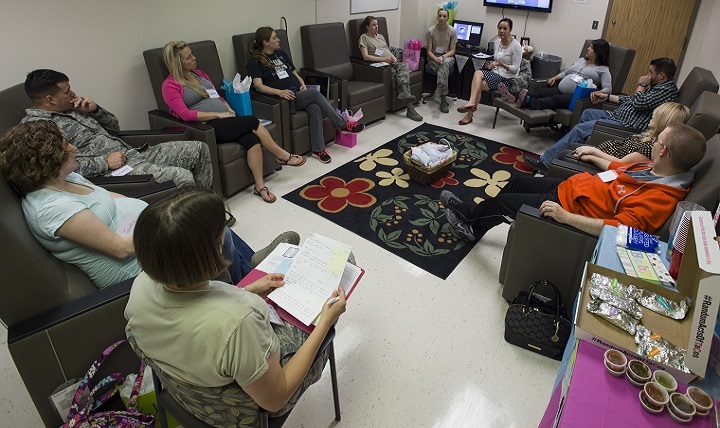As a new parent, every day is a trial. On some nights, you might go to bed feeling defeated, questioning your ability to be a parent. On other nights, you might go to bed feeling triumphant. Still on other nights, you might not go to bed at all because you couldn’t stop your baby from crying. Every new parent may feel at some point as though their parenting experience should not be hard as it is. This is perhaps due the common perception that welcoming a new member into the family should be a time of enriching relationships and blissful celebration. As wonderful as this time can be, it is hard to admit that parenting is extraordinarily difficult at the same time.
Try to think of it this way: parenting is hard because you are doing it right. Below are three reasons why, just based on what we have already learned!
1) The learning curve is steep. Have you ever tried to learn a new language like Spanish, or use a new software program like Photoshop? What about the last time you tried to pick up a new sport like tennis, or a new hobby like knitting? Chances are that the first hours, days, even weeks were not easy. You might have had no idea how to hold a tennis racket at first, and you might have felt overwhelmed by how many tools Photoshop offers with no instructions manual on how to use them! Most likely, you spent a lot of time learning the fundamentals through trial-and-error, and as you gained more experience, things smoothened out over time.
We can view parenting as an extreme version of this, except instead of learning how to use a new racket or software program, you are getting to know your child. In this module, you learned about how it is not always straightforward to tell whether your baby has had enough to eat, but that you will learn what your baby’s hunger and fullness cues are over time. You also learned in this module about how to best interpret and respond to your child’s crying over time. Even your baby’s sleep schedule is something you have to adapt to over time! The more exposure you have to your baby, the more you learn about your baby’s unique cues and characteristics. You might feel frustrated and uncertain when you encounter something unfamiliar, but as you learn to determine what is normal and what is not, you will gain confidence in responding to your child.
Remember that it is a steep learning curve for your baby as well, as he or she learns to trust you and take comfort in your warmth and voice (see module: Does my baby recognize me?). Your baby is learning about you and the world just as much as you are learning about your baby and the parenting journey. It is a challenging and simultaneously exciting time for both parties, and acknowledging this will help you persevere as you reap all the rewarding aspects of watching your child grow up!

2) The second reason that parenting is bound to be difficult is due to the control you might perceive that you have over your parenting journey. Here, you learned that all babies cry for various amounts of time per day, for reasons that are often outside of your knowledge and control. Here and here, you learned that babies tend to operate on their own sleeping and feeding schedule, independent of what your wishes and desires may be. In spite of this, you still have to make a massive number of decisions, like knowing when your baby has had enough to eat, or deciding whether to breastfeed or bottle feed your baby! It is difficult to invest all this mental energy into your baby, while still having to confront so many factors outside of your control. This feeling of control — and occasional lack thereof — makes parenting difficult for any adult.
3) The final reason, and perhaps the most important reason, is love. It is because you love your baby that you might feel so distressed whenever your baby is crying or seemingly in discomfort; it is for the same love that you might feel compelled to worry whether your baby is healthy or sick, or think about what’s best for them, or feel so happy when your baby smiles back at you. The beginning of a parenting journey is certainly a rollercoaster of feelings, as it should be; and this love is what creates all the challenges of parenting, but what makes it so rewarding and entirely worthwhile in the end!
Supplementary Material
For additional information and resources, take a look at the following.
1. Were you interested by the study we mentioned on cognitive dissonance in reason 1, or do you want to learn more about it? See this article by Psychological Science for a more detailed discussion on Eibach and Mock’s study.
2. Remember that there are countless other new parents, going through the same joys and struggles that you are going through! Finding a community like this to learn from and share your own experiences can be invaluable, and remind you again that you are not alone in your journey.

Here is a Parenting Support Program called the Nurturing Families Home Visiting Program, offered by the Yale New Haven Hospital, that helps first and second time fathers and mothers meet the challenges of parenthood and learn positive parenting skills through weekly home visits by certified Parent Educators.
Here is a website, by the Connecticut Parent Advocacy Center, that will help you find a parenting support group, no matter which region in Connecticut you live!
References
Mayes, L. C. & Cohen, D. J. (2002). The Yale Child Study Center Guide to Understanding Your Child: Healthy Development from Birth to Adolescence. Boston: Little, Brown, and Company.